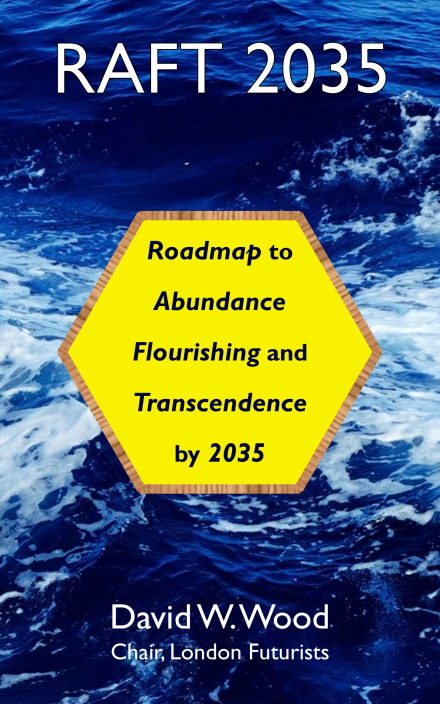An extract from Chapter 7 of the book Transcending Politics:
7. Energy and emissions
What’s the point of extending our potential lifespans (as discussed in the previous chapter), if the planet upon which we are living suffers an ecological collapse? Who cares about extra medicines that could undo the damage of cellular aging, if we’re unable to undo the damage we’re collectively inflicting on our environment, via greenhouse gas emissions and other chemical distortions? Why bother about reducing the build-up of trauma within our biological bodies, if the trauma in our atmosphere, our oceans, and our countryside grows inexorably?
The structure of the argument in this chapter mirrors that of its predecessor. That chapter started by lamenting society’s apparent inability to reduce the escalating costs of healthcare. This chapter starts by lamenting our apparent collective inability to reduce the escalating risks of runaway global warming. In both cases, the answer to the lament should be straightforward. A techno-optimist would say, don’t worry: better technology will take care of things. In both cases, my response is: It’s more complicated than that. Better technology will only work its magic if society actively steers technological development in the right direction. And that will probably be a lot harder than it sounds.
Note: to avoid undue complications, I’ll exclude from the following discussion several other potential environmental disasters that loom in our future, such as fresh water depletion, soil erosion, and the distortion of the phosphorus and nitrogen biogeochemical cycles. I’ll restrict my focus to global warming. The themes that emerge from analysing global warming will illustrate the wider point, which is the need for new politics to emerge as an active partner to new technology. It’s only the combination of new technology and new politics that will provide the means for us to avoid these environmental disasters.
The potential of green technology
From one point of view, it’s absurd that there’s any risk of greenhouse gas emissions pushing the planet into any danger territory. Instead of making such heavy use of carbon-based fuels, such as oil, gas, and coal, we should be transitioning rapidly to greener, cleaner energy sources. After all, it is frequently remarked that the earth receives from the sun enough energy in a single hour to meet all human needs for energy for a whole year…
<snip>

